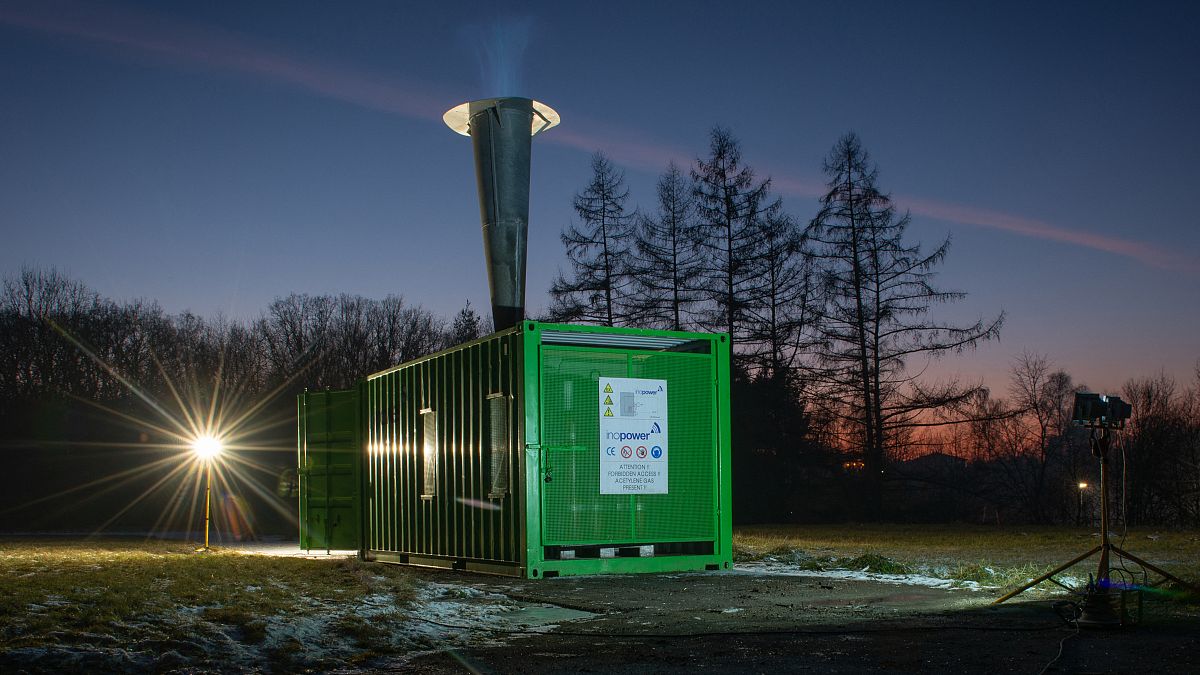Poland is one of the most polluted countries in Europe, breaching EU norms by hundreds of percentage points at the worst times of year.
In a battle against Poland's high levels of smog, scientists are testing out a new "cannon" that uses soundwaves to push toxic particles higher into the atmosphere to allow residents to breathe.
Installed on top of a metal container, the experimental device consists of a large upside-down cone that makes a loud sound every six seconds.
The aim is to chase the smog from Kalwaria Zebrzydowska, which like many Polish towns and cities faces high levels of pollution every winter when residents fire up their heating systems.
When the sun goes down, a heavy smog descends on the town as chimneys belch out thick smoke.
Residents are broadly in favour of the idea despite the sound.
"The smog is very heavy here. We can't even air out the flats because it stinks so much! So, if it can help, let them do the tests because it is very annoying," said Jolanta Wolkowicz, one of the town's residents.
"We can barely hear the sound -- it's like fireworks going off," she added.
Poland is one of the most polluted countries in Europe, breaching EU norms by hundreds of percentage points at the worst times of the year.
By creating soundwaves, researchers say that the "cannon" helps reduce the concentration of harmful PM2.5 and PM10 particles in the town's air.
"Here we use a shock wave which is created by burning a mixture of acetylene and air. This vertical wave mixes and throws the polluted air upwards," explained Dominik Grybos, a scientist at the Academy of Mining and Metallurgy in Krakow.
The toxic particles are sent up several hundred metres high, making them harmless for residents.
"We have found that if we use the cannon for between half an hour and an hour, the pollution is reduced by 15-30% within a perimeter of two-three kilometres from the cannon," Grybos went on, adding that the effects last for "between one and three hours".
Researchers are trying to work out the required frequency of the blasts, as well as the duration and the time needed for the entire procedure.
The price is estimated at 1,000-1,500 zloty (€220-€330) for one hour of use.
Grybos said he hopes the invention could find a commercial use, particularly in Poland.
